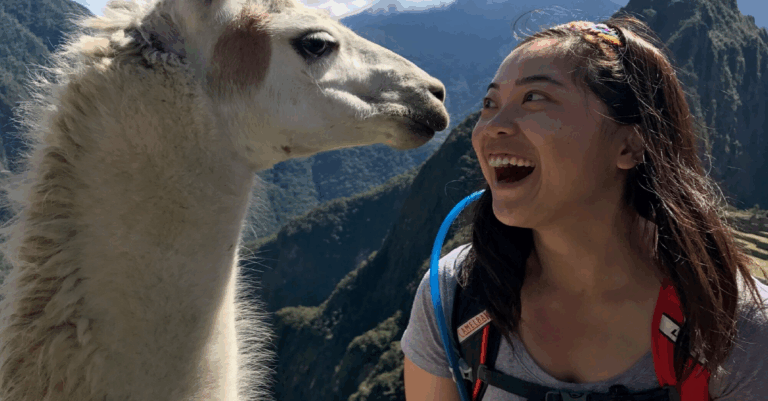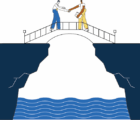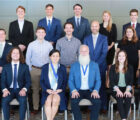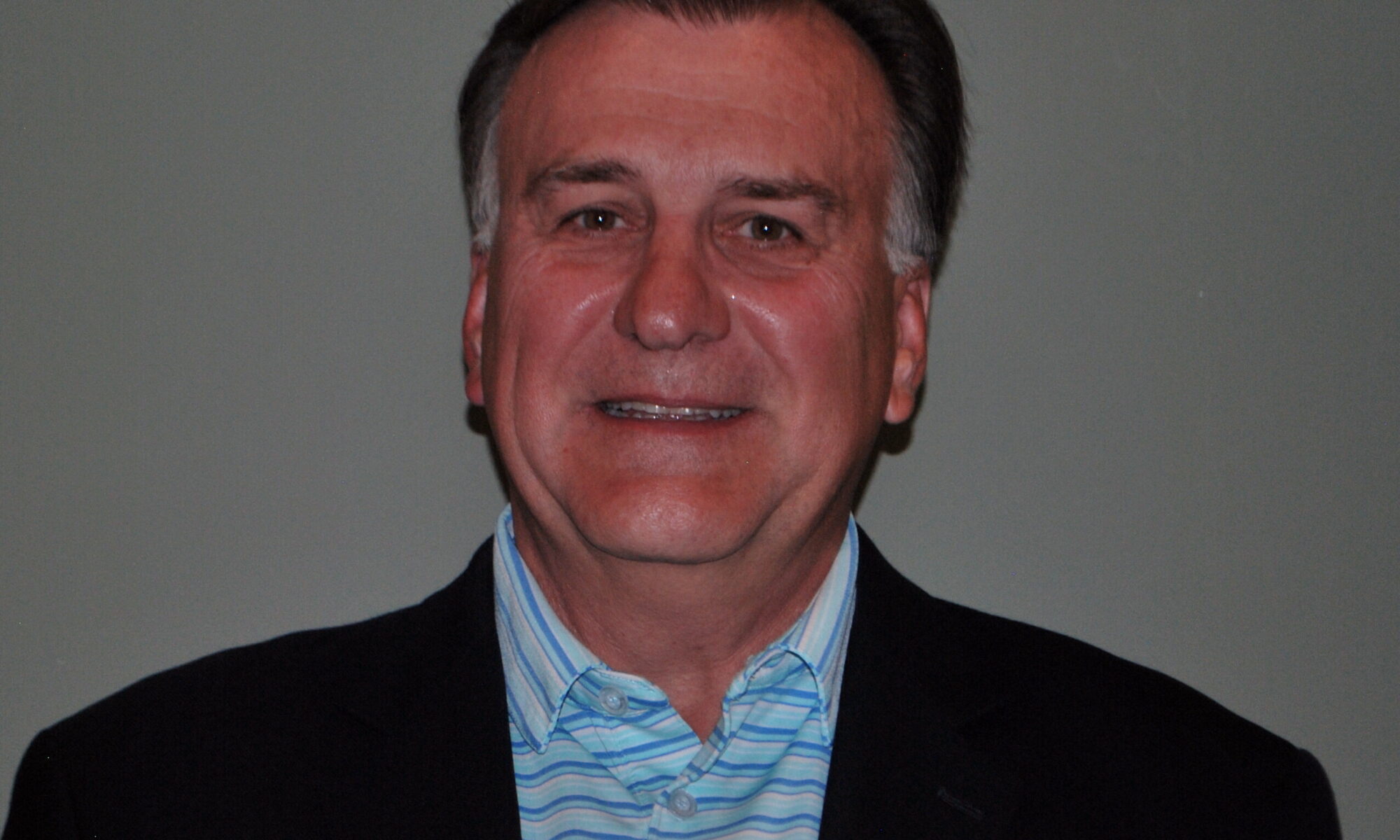
Kiki Wang, FCAS, has been to places many people have never gone. Over the course of her career, she has worked in personal lines pricing at AIG, consulting at WTW, commercial lines underwriting at Chubb and excess and surplus (E&S) at Upland Capital Group. She also has a prolific volunteer track record with the CAS, bringing home an Above and Beyond Award in 2020 for her role on the Ratemaking, Product and Modeling (RPM) Committee. With all these feats, you wouldn’t think Wang would have the energy to run a marathon, much less one on each continent. Yet that is exactly what she did, and I had the pleasure of catching up with her recently to talk about her experiences.
AR: True or false? Did you actually run seven marathons on seven continents?
KW: True. Back around 2017, a friend told me about this marathon where you run through the Inca Trail, and you get to Machu Picchu at the end. It sounded really cool. At that time, I had never traveled internationally since coming to the U.S. There are always budget constraints and all that. I just never really thought of it but said to myself, “That sounds cool!”
AR: How did you go about training for the marathon?
KW: To be honest, I was young and stupid. At the time I was a big hiker. I was really active and did some runs here and there and stayed fit. I thought I would be fine. I never really looked up what a marathon training plan is. A month or so prior to the race, I realized that this run would be high-altitude and very difficult, so I made last-ditch effort to schedule a trip to Colorado the weekend before and did a bunch of hiking and running, just trying to acclimate. Then I went.
AR: How did it go?
KW: It was an amazing experience. It was really painful — definitely nothing easy. I wasn’t a good runner. I’m still not. It was so hard, and I ran for almost the entire day. There were certain times I almost feared for my life, because there were giant rock stairs up and down the mountain. When you’re going down, you have to pick up speed. I thought, “If I miss one step….” But it’s something I’ve never experienced before, and it was so cool being out there essentially all by myself at times.
AR: When did you realize you wanted to run six more marathons?
KW: When I finished in Machu Picchu and the sun was setting, I was one of the last people left before the last bus back into town. I thought, “Wow, I did it.” It’s probably the hardest thing I’ve ever done in my life, but I made it happen — partially out of pure will because I did not have a lot of physical ability. And Machu Picchu was just so meaningful. I suddenly realized I wanted to keep doing stuff like this — although obviously be a little more prepared! I happened to meet some of the other runners. A lot of them had something in common — they run a lot of marathons around the world and have this goal of doing seven marathons on seven continents. That planted the idea in my head. The first thing I did when I got back was sign up for the Antarctica marathon.
AR: Tell me about Antarctica.
KW: I flew to Argentina first, where they chartered a cruise for the runners from Ushuaia that took me to King George Island for the race. I went through other parts of Antarctica, and it almost felt like a tourist cruise. That was amazing. It gave me time and space to reflect and think. I purposely didn’t buy the internet package. Every time I looked out of the window, it was just endless ocean or ice, or sometimes I saw penguins and other animals. All I heard was the ship and the environment outside. It was very healthy for me. I never really had time to reflect like that.
AR: Where else did you run besides Machu Picchu and Antarctica?
KW: [In Asia,] I went up to the Everest base camp and then ran down. That one was not easy because I got altitude sickness before. At times I could barely eat and was coughing stuff up nonstop. Physically, it was terrible, but it was probably one of the most memorable races I’ve had. I was truly enjoying the environment and the people, sneaking out for drinks with them and things like that. Next, I ran the Queenstown marathon in New Zealand. That was technically [Oceania,] not Australia. I flew in three different planes, over 30 hours of economy class. I pretty much walked halfway because I couldn’t run it all, but it was so beautiful there. I felt like I experienced all four seasons in one day — first it was sunny and beautiful, then snowy and then windy. [In Africa] I started at one of the gates from which people climb Kilimanjaro and ran down. Then I did the “Rock ‘n’ Roll” in Las Vegas on my birthday. The best part is the half-marathon where you run through the Vegas Strip, and for the rest they basically put you in a parking lot and ask you to run through all this stuff to make up the remaining distance. My most recent race was in Greece — the Athens marathon. We ran the original marathon route from the town Marathon to the iconic Panathenaic Stadium in Athens.
AR: You mentioned that you didn’t prep much for the first race. Did that change later on?
KW: I never aggressively planned events, but I always tried to learn something from the previous race. For example, [after Queenstown] I would make sure I got to the place a couple days in advance so that my legs were fresh. [After Everest,] I knew what medicine to take for altitude sickness — and probably not to go out and drink beforehand! Planning is a lot of work. I usually pick a date and start working backwards towards when I need to ramp up training: doing bigger backpacking trips, more trail running and monitoring my nutrition. The biggest thing of all: It’s always about getting it booked. Then you just have to do it. If worse comes to worst you can cancel it, but that’s a much bigger mental hurdle backing out once you have already signed up for it. And on the flip side, if you don’t sign up, then you’re not going to be able to do it.
AR: How did you balance the marathons with work?
KW: I didn’t train that hard. That’s really what it was. I still put in training time, but I’m not an elite runner. I’m not even a good runner to this day. I’m not there trying to brag about my time or anything. Sometimes you’re suffering during the race, but if you are taking an action there’s a chance you can make it. You get it done because otherwise you just dream about it. Also, it turns out running is a good way to get work out of your head. Even sometimes when you do think about work, when you’re running or doing stuff outside, you have the time and space to think about it. You’re not really talking or complaining about it with others, so you can actually be shaping problems more logically in your head. But most of the time it’s you just spacing out. And then, like half an hour later, I realize, “What was I thinking again?” That’s usually a nice moment.
AR: Speaking of outside work, why did you start volunteering with CAS?
KW: If you’re within a company, you’re confined in what your company does. You’re in a little bubble, right? Or maybe a big bubble. But it’s good to see outside of that bubble and have relationships with people that are not purely a work relationship. Here people are spending their time for free, purely for the reason that they want to move the profession a little further or feel like they can contribute to it or have a voice in it. Seeing people volunteering and getting to like it when I was younger, I kind of just started doing it. I really like planning conferences and webinars. I have my own ideas of what kind of topics will resonate, and I can help make them happen. That’s pretty powerful in a way. You’re shaping what industries need to listen to!
AR: Speaking of CAS, there is a rumor you threw candy at me at a conference.
KW: Yes, I did. I still throw candies at people! I bring chocolates to work whenever I travel. You have to keep people engaged











